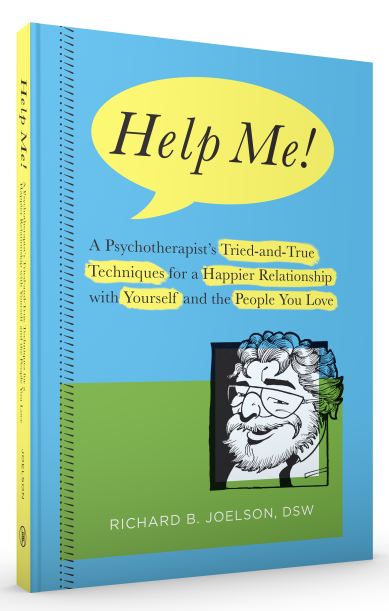
Photo by fizkes/Shutterstock
How can we learn to attend to the emotional significance of an issue and our partner’s point of view?
Some people, it seems, need to be ‘right’ more than they need almost anything else. I am frequently struck by the verbal lengths a person will go when they are very sure of themselves and someone challenges their belief, their memory, or their knowledge about something. This need takes many forms and is an interpersonal transaction often observed in the context of my work with couples.
One of the classic examples occurs when a couple is going somewhere in their car with one partner driving and the other partner navigating or just giving advice about how best to get to their destination. At the proverbial fork in the road, the driver decides to go left while the other insists that the other way is the “right” or better way. They get stuck in unanticipated traffic. The non-driving partner becomes angry with the partner driving for having chosen the “wrong” way to go and, therefore, causing them to become stuck in traffic. “See, I told you we should have gone the other way,” he or she screams at the hapless driver. Rather than share the unfortunate development in a “we’re in this together” manner, the non-driver now blames the driver for their plight as though he or she committed a terrible offense. This seems to me to be an example of not only needing to be right, but punishing the other for having managed to be wrong or, in this case, made a reasonable choice that resulted in frustration and disappointment, but did not deserve anger and condemnation.
In a USA Today report titled “Driving each other nuts,” adults who argue with their partner while driving were asked what they argue about. Here are the results:
• Calling partner bad driver – 31%
• Route to take/Asking for directions – 36%
• Radio/Music Choice – 13%
• Partner’s bad habits in car – 11%
• Other – 9%
Another study found that the average couple can last only twenty-two minutes into a road trip before they get into an argument. The Seat car company from Spain surveyed three thousand people and found that short fuses and long car trips do not mix. The most common cause of automotive acrimony is disputes over directions, with 44 percent of those surveyed saying they argued over which way to go.
In a recent couple’s therapy session, Marvin wanted to reprocess an argument that he believed typified the kinds of conflicts that he and his wife Jill frequently experience. As he began to describe the specifics of the interaction that had occurred between them, Jill disputed his description of the day, time of day, location, and much of the content of what took place between them. Marvin, evidently having no less a need to be right than Jill, counter-disputed Jill’s account of their conflict which, not surprisingly created a whole new conflict between them. Fortunately, this occurred in the treatment room where we were able to address it and hopefully help them do better when disputes like these arise in the future.
I often find myself in the position of reminding patients that we are in therapy and not in court, where the facts are much more important and relevant. In therapy, the “court of feelings,” we are far more interested in perceptions, emotional triggers, and what past experiences or beliefs are being activated by current interactions with present-day significant others. We are not terribly interested in whether the conflict occurred on Thursday or Friday, in the living room or the kitchen. We don’t care whether or not he or she yelled or spoke normally, or whether one person’s recall of the specifics is superior to that of their partner. One of the main reasons many couples seem to recycle the same arguments over and over again is because their efforts to resolve conflicts are defeated by their need to be “right” in their retelling, replaying, or reprocessing of a conflict, making it difficult for them to attend to the emotional significance of the issue and the reasons why they are experiencing matters so differently from each other.
